[ad_1]
Portrait vs panorama: It’s a tough comparability as a result of it’s typically unclear what’s really being mentioned.

In any case, we might be speaking about:
- The portrait style vs the panorama style
- Portrait strategies vs panorama strategies
- Portrait gear choice vs panorama gear choice
- Portrait orientation vs panorama orientation
- Portrait careers in opposition to panorama careers
Effectively, don’t fear. As a result of on this article, we’re going to cowl them all. You’re going to find the distinction between portrait and panorama in each sense of the phrase.
Let’s get began.
Portrait vs Panorama: Images Style
Portrait and panorama pictures are two of the most well-liked genres on the market. However what’s the distinction?
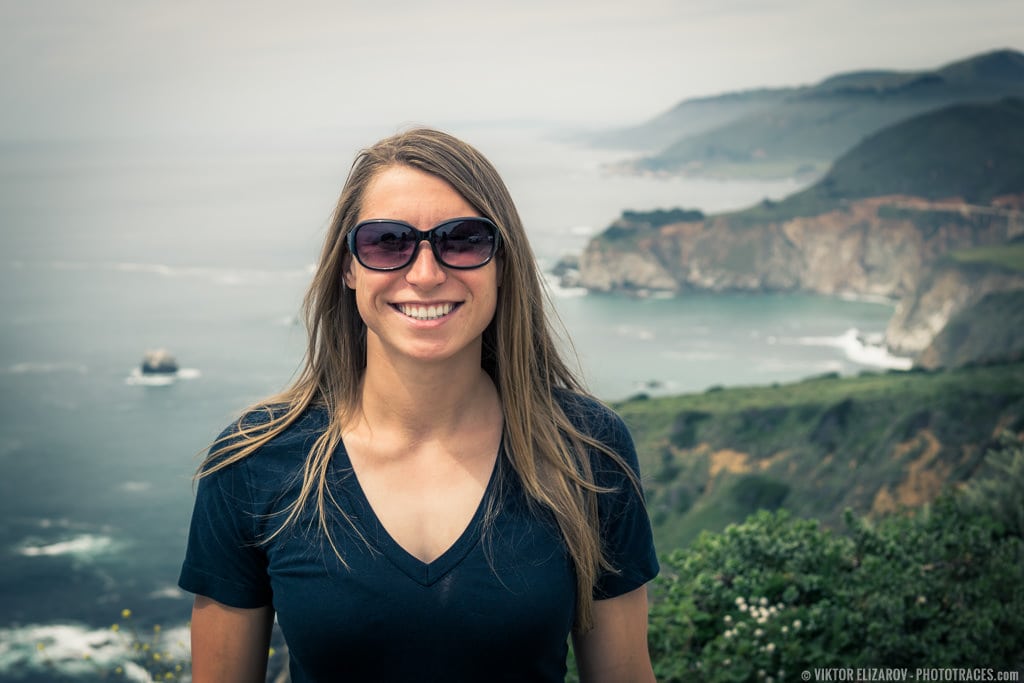

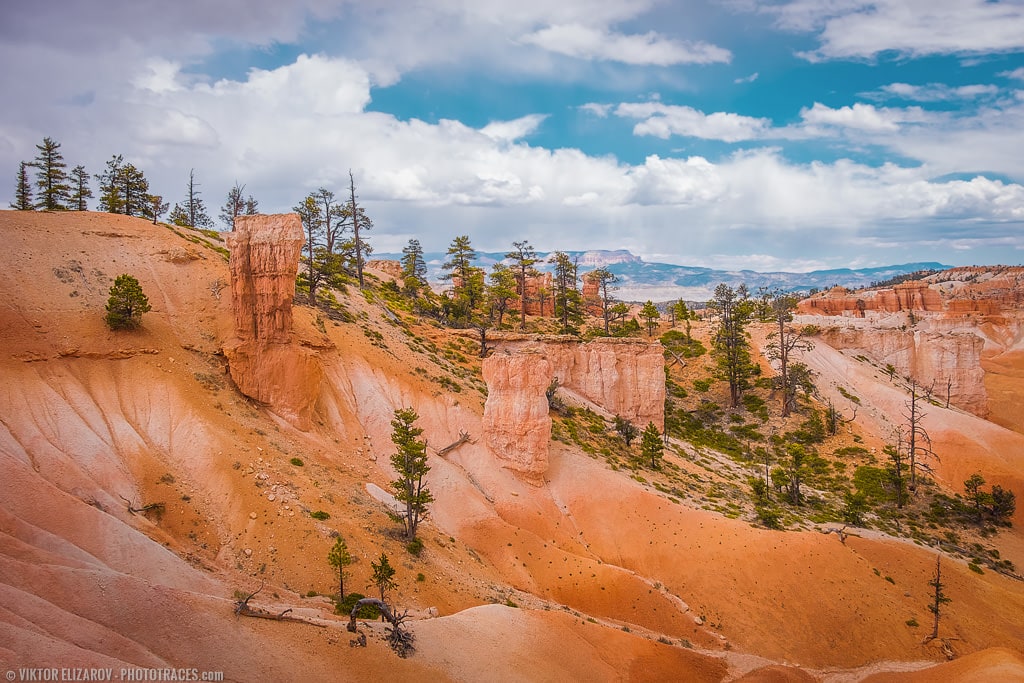

Style of Portrait Images
Portrait pictures refers to photographs of individuals taken with the topic’s permission or expectation.
And the portrait style is understood for its dedication to shallow depth of area (for an out-of-focus background) and frequent reliance on studio gear (for flattering, beautifully-lit outcomes).
Word that portrait pictures isn’t nearly approach, nonetheless. To seize stunning portraits, you must seize one thing of your topic, which frequently requires connecting with them on a deep degree.
Style of Panorama Images
Panorama pictures is outlined as photos that embrace a wider perspective–usually taken in nature, although generally in metropolis environments (e.g., city landscapes).
Word that panorama photographers love a deep depth of area impact, which is the other of a shallow depth of area impact (as described above); with a deep depth of area, your total picture is usually sharp, from entrance to again.
As with portrait pictures, panorama capturing requires gaining a deeper connection together with your topic (which is usually the pure world).
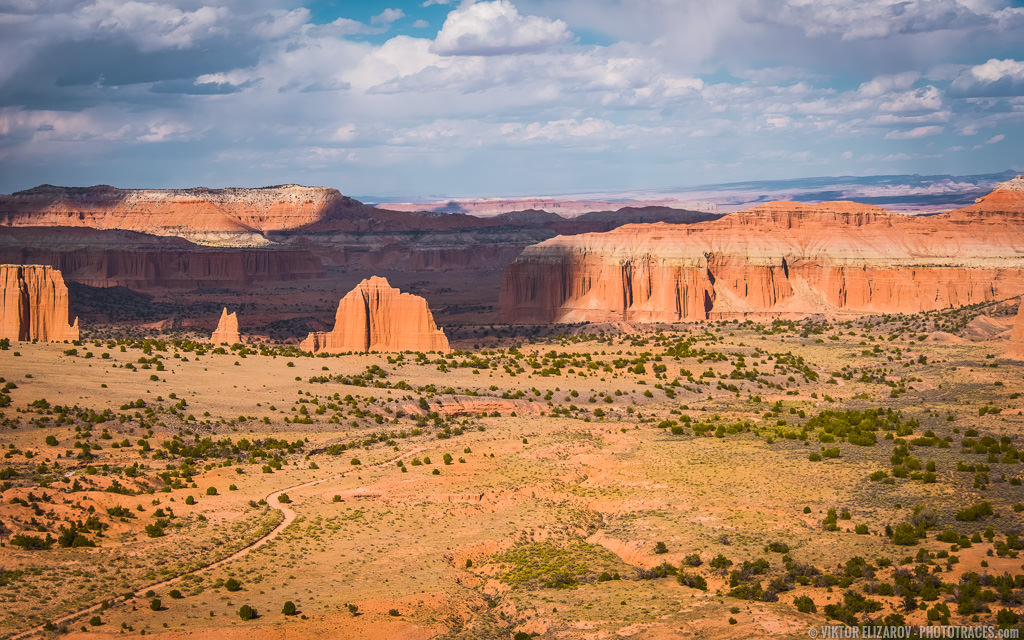

Panorama vs Portrait: Images Method
Portrait photographers intention for a shallow depth of area impact as a way to separate the topic from the background.
See additionally: The best way to Know What Aperture to Use
Then again, panorama photographers try to seize the whole scene as an entire, that means that the picture ought to be sharp all through.
Blurring the Background in Portrait Images
Portrait photographers love a smoothly-blurred background.
Right here’s how they do it:
First, portrait photographers use a focal size of round 50mm or longer.
(The longer the focal size, the shallower the depth of area, and the higher the background blur.)
Second, portrait photographers use a large aperture, usually between f/1.4 and f/2.8.
Third, portrait photographers get near the topic. The nearer your lens is to the topic it’s specializing in, the higher the blur within the remaining picture.
Put all these items collectively, and also you’ll find yourself with a pointy portrait in opposition to a clean, creamy background.
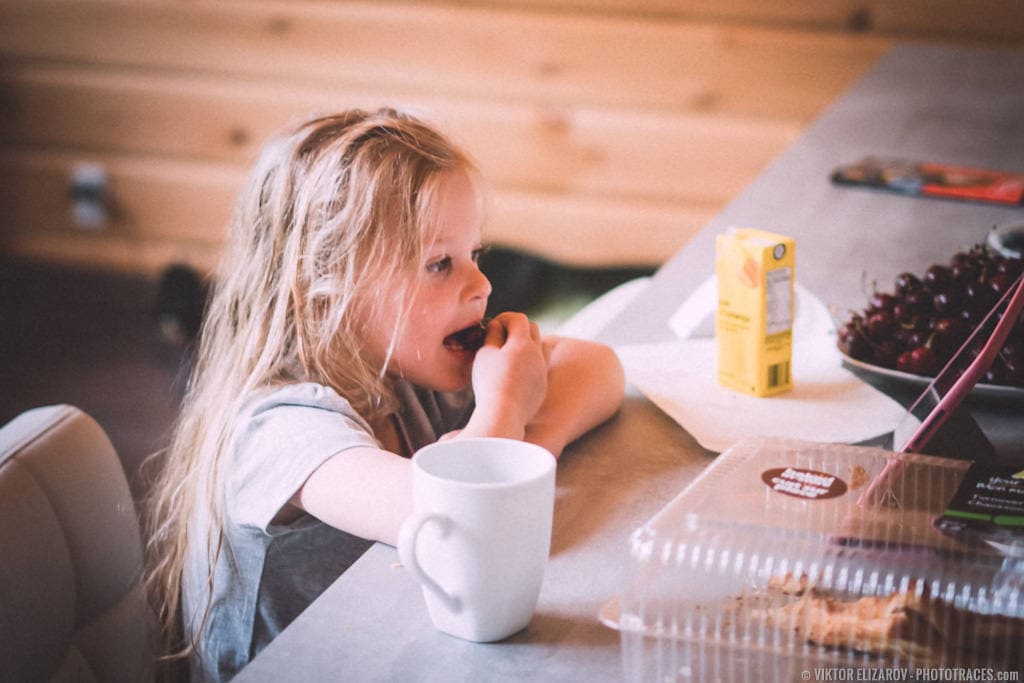

Maximizing Depth of Discipline in Panorama Images
Panorama photographers usually try to maximise depth of area, guaranteeing each the closest foreground component and essentially the most distant background component are tack sharp.
Right here’s what you do:
First, choose a lens with a large focal size. The broader the focal size, the deeper your depth of area, all else being equal!
Second, regulate your aperture in order that it’s as large as potential (with out sacrificing picture high quality because of diffraction). I’d advocate an aperture within the f/8 to f/11 vary.
And third:
Focus on the hyperfocal distance, which is the purpose at which you maximize the world of the picture that’s sharp. Whereas there are calculators and apps you should use to find out the hyperfocal distance, a very good rule of thumb is to focus round a 3rd of the best way into the body. That approach, you’ll get most–and hopefully all!–of the scene sharp.
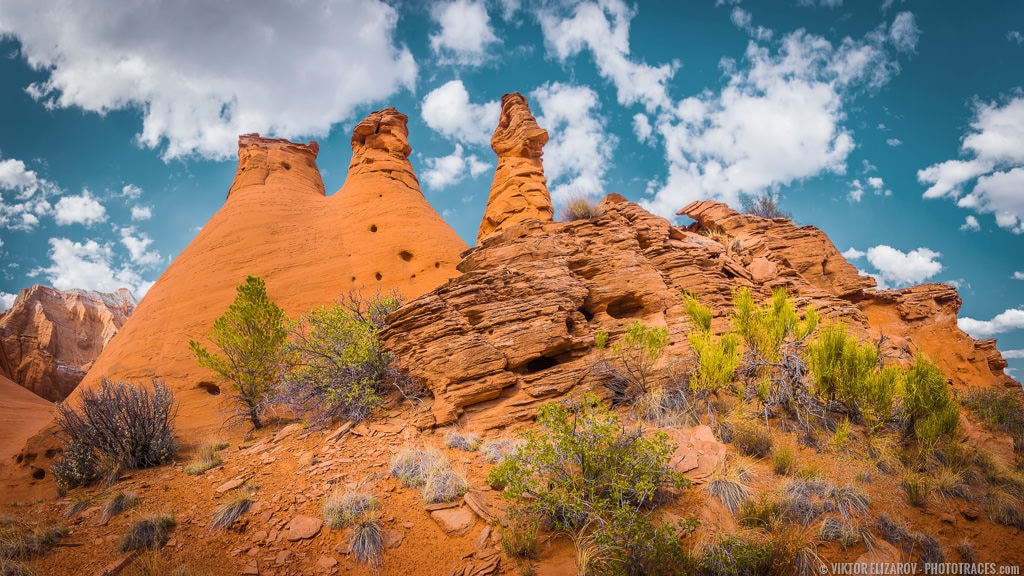

Portrait vs Panorama: Picture Gear Choice
As you may count on, portrait and panorama photographers use totally different gear.
However what, particularly, may you discover in a portrait photographer’s bag in comparison with a panorama photographer’s bag?
Gear for Portrait Images
Portrait photographers usually use DSLRs or mirrorless cameras. Most of the most critical portrait shooters work with full-frame sensors, as this helps obtain a lovely shallow depth of area impact whereas additionally guaranteeing higher ISO efficiency in low gentle.
See additionally: 35mm vs 50mm Lens
As for lenses, portrait photographers are inclined to work within the 50mm to 200mm vary. Many portrait photographers use a 50mm prime, an 85mm prime, and a 70-200mm zoom. Word that the perfect portrait lenses supply large most apertures (i.e., f/2.8 and under) for a blurred-background impact.
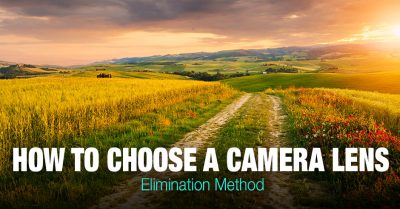

Portrait photographers aren’t particularly keen on tripods–portrait classes are usually too fast-paced and spontaneous.
However you will discover loads of portrait shooters working with lighting gear, particularly within the studio. This contains exterior flashes reminiscent of speedlights or strobes, modified by umbrellas and softboxes.
Gear for Panorama Images
Panorama photographers usually work with full-frame mirrorless and DSLR cameras, although APS-C and Micro 4 Thirds programs supply a pleasant compromise when it comes to weight and slim depth of area.
See additionally: Greatest Tripod Manufacturers
Panorama shooters just about all the time carry no less than one wide-angle lens, in addition to a telephoto lens for tighter landscapes. So that you’ll typically discover panorama shooters with an (roughly) 16-35mm lens, a 24-70mm lens, and a 70-200mm lens.
Not like portrait photographers, panorama photographers don’t require lenses with large apertures since they intention to realize a deep depth of area. And synthetic lighting is nearly pointless, given the vastness of the panorama in comparison with the beam of a speedlight.
However a tripod is just about a necessity for panorama photographers, and there are lots of panorama snappers who don’t go anyplace with out one.
Portrait and Panorama Orientation as Parts of Composition
Now let’s check out the distinction between panorama and portrait orientations.
Word that images wider than they’re tall have a horizontal orientation, often known as panorama orientation.
And images taller than they’re large have a vertical orientation, often known as portrait orientation.
See additionally: Composition – Golden Ratio in Images
However how do these totally different orientations have an effect on your photos?
Selecting Portrait Orientation Over Panorama Orientation
Portrait orientation emphasizes vertical traces whereas doing a very good job of becoming topics/scenes which can be tall and compressed.
That’s why portrait orientation is usually used when photographing a full-body portrait, a waterfall, buildings, and extra.


Word that social media minded photographers typically {photograph} (or crop) in portrait orientation to optimize photos for viewing on mobile-focused apps, reminiscent of Instagram.
Selecting Panorama Orientation Over Portrait Orientation
Panorama orientation emphasizes horizontal traces and is nice for huge, sweeping scenes, which is why it’s generally used for panorama topics in addition to environmental portraits.
Word that panorama orientation permits you to embrace quite a lot of unfavorable house round your topic, which in flip creates impactful, minimalist photos.
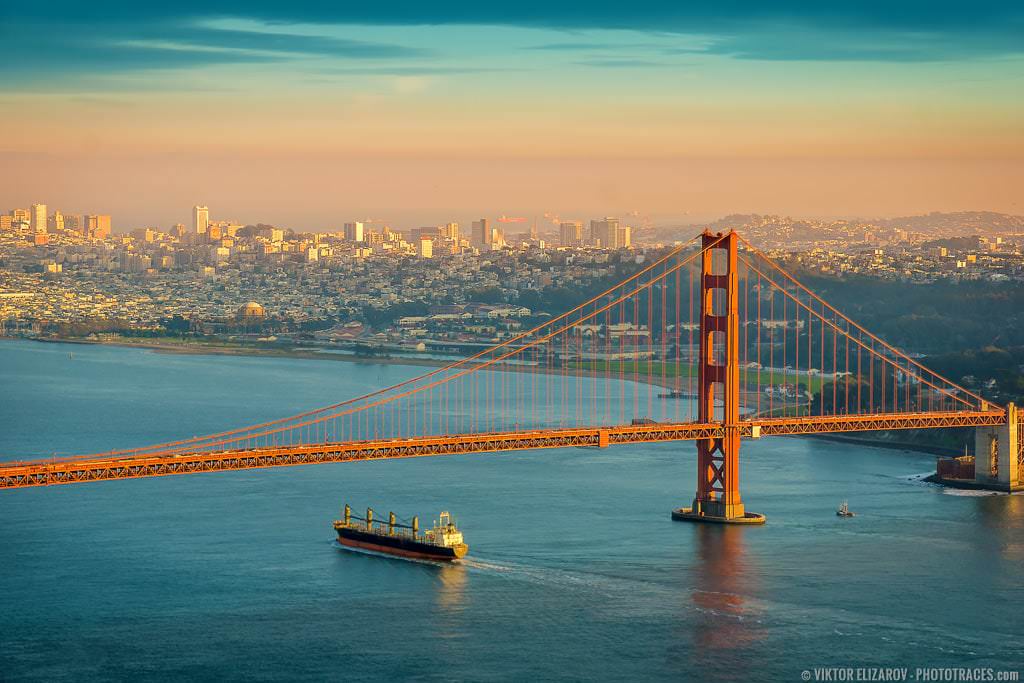

Additionally observe that you simply aren’t essentially locked right into a panorama orientation; you’re all the time free to crop to portrait orientation, even after you’ve taken a picture.
In case you’re planning to show your photos on the pc or the TV, panorama orientation is usually the best way to go.
Portrait vs Panorama: Profession Decisions
Skilled portrait photographers {and professional} panorama photographers have very totally different talent units, totally different enterprise fashions, totally different advertising and marketing methods, and extra.
Portrait pictures entails quite a lot of work with purchasers earlier than and throughout the photoshoot. Panorama pictures is extra nature-focused and extra remoted; you typically spend hours strolling, mountaineering, driving, and so on., to get that once-in-a-lifetime shot.
Additionally, observe that portrait photographers are inclined to promote regionally, whereas panorama photographers concentrate on promoting prints and/or workshops to shoppers across the globe.
Portrait vs Panorama | Conclusion
Hopefully, you now perceive the important thing variations between panorama vs portrait pictures.
And also you’re in a position to determine what works for you!
Articles Associated to “Portrait vs Panorama: 5 Foremost Variations“
[ad_2]

